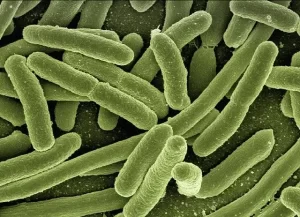Intestinal polyps are easy to become cancerous?
- Did Cloud Seeding Unleash a Deluge in Dubai?
- Scientists Identify Gut Bacteria and Metabolites that Lower Diabetes Risk
- OpenAI’s Model Matches Doctors in Assessing Eye Conditions
- UK: A Smoke-Free Generation by Banning Sales to Those Born After 2009
- Deadly Mutation: A New Monkeypox Variant Emerges in the DRC
- EPA Announces First-Ever Regulation for “Forever Chemicals” in Drinking Water
Intestinal polyps are easy to become cancerous?
- Red Yeast Rice Scare Grips Japan: Over 114 Hospitalized and 5 Deaths
- Long COVID Brain Fog: Blood-Brain Barrier Damage and Persistent Inflammation
- FDA has mandated a top-level black box warning for all marketed CAR-T therapies
- Can people with high blood pressure eat peanuts?
- What is the difference between dopamine and dobutamine?
- What is the difference between Atorvastatin and Rosuvastatin?
- How long can the patient live after heart stent surgery?
Intestinal polyps are easy to become cancerous? The doctor said: mainly by looking at these two aspects, you can know whether cancer has occurred.

Intestinal polyps are a kind of lesions with limited protrusions in the intestinal mucosa, and most of them are benign lesions.
But according to the nature of the pathology, polyps are divided into:
- Neoplastic polyps,
- Inflammatory polyps,
- Hamartoma,
- Hyperplastic polyps and so on.
The neoplastic polyps mentioned here mainly refer to adenomas. Adenomas are benign lesions, but they are also the most likely to become cancerous polyps.
It is also the most common in intestinal polyps, accounting for about 70 to 80%.
Speaking of polyps, in fact, many people think that it is a disease as terrible as cancer.
In fact, most intestinal polyps are not cancerous, but once they are cancerous, they happen quietly, and once they are found, most of them are already in the advanced stage, even Extensive transfer has occurred.
Therefore, if you want to judge whether a polyp is likely to become cancerous, it is mainly based on the polyp’s character and size.
Characters:
Ulcer depressions appear on the flat surface of the polyp, which will bleed easily when lightly touched, and the texture is brittle. It is highly likely to be malignant.
Or the polyps on the intestinal wall and the bottom of the intestinal wall are relatively wide, just like lying on the intestinal wall.
Such polyps are not easy to be found and difficult to remove, so they are also prone to cancer. Such polyps will develop into bowel cancer in about 3 years at the earliest.
Size:
Polyps less than 2 cm are mostly benign, and polyps greater than 2 cm are mostly malignant.
- Note: The possibility of single or two polyps becoming cancerous is not very high;
- The chance of canceration below 1 cm is 1%~3%;
- 1~2 cm cancer rate is 20%;
- The incidence of cancers above 2 cm is as high as 50%
In fact, smaller polyps grow in the intestines, the human body does not have any uncomfortable feelings, only when the polyps grow up, the body will have some symptoms.
1. Difficulty defecation
When polyps grow to a relatively large size, they will block the intestines. At this time, there will be difficulties in defecation or intestinal obstruction.
2. Increased stool frequency
The intestinal tract is stimulated due to polyps, which will impair intestinal function, so there will be an increase in stool frequency.
3. Bloody stool
Bloody stools are often easily confused with hemorrhoids. In fact, the polyps in the intestines grow up every day and the blood supply is not good.
Over time, the surface of the polyps will appear erosions, which leads to blood in the stools.
These 5 types of people are most susceptible to intestinal polyps
1. People over 45 years old
2. Have a family history of multiple intestinal polyps
3. Suffer from diseases that easily cause intestinal polyps, such as ulcerative colitis, intestinal tuberculosis, schistosomiasis
4. As long as the following risk factors meet 2 items, they are prone to intestinal polyps. Such as chronic diarrhea, chronic constipation, mucous blood in the stool, chronic appendicitis, history of appendectomy, long-term mental stress, long-term sedentary, lack of exercise, long-term eating high-protein and high-fat foods.
5. After surgical resection of intestinal polyps, due to the extremely high recurrence rate, patients who are not regularly reviewed after resection.
A
t this time, many patients will ask, if you have a polyp, should you have surgery?
Although most intestinal polyps are benign lesions, there will be a chance for malignant changes one day if they are allowed to develop.
As polyps increase and the number increases, the chance of canceration will also increase.
Therefore, every time a patient encounters an intestinal polyp, it is generally recommended to remove it.
Of course, this requires the doctor to provide professional advice to the patient according to the specific situation.
And half a year after the surgical resection, a colonoscopy must be done to see if there is any recurrence.
Intestinal polyps are easy to become cancerous?
(source:internet, reference only)
Disclaimer of medicaltrend.org
Important Note: The information provided is for informational purposes only and should not be considered as medical advice.



